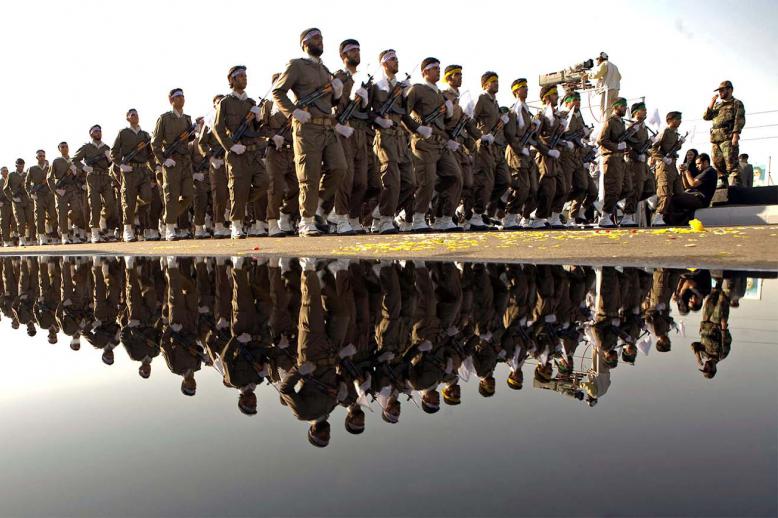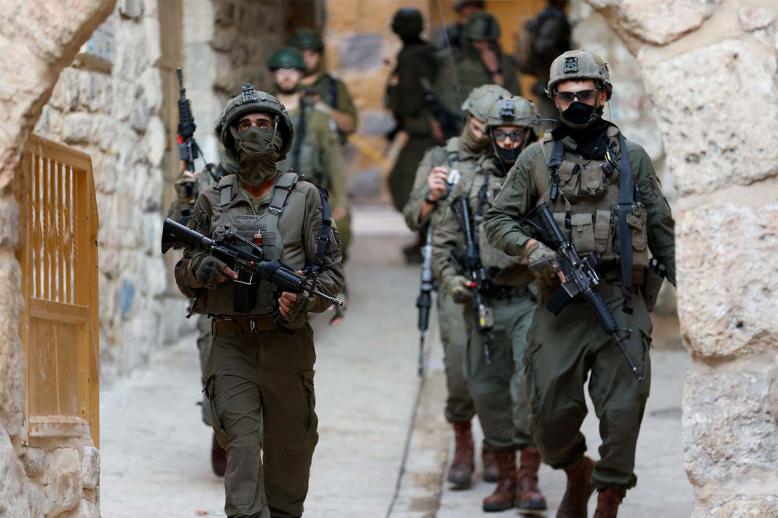Gaza-Israel war: The day the status quo ended
The Israeli-Palestinian conflict will never be the same. With support from Iran, Hamas launched an unprecedented attack on the Israeli military and civilians surrounding the besieged Gaza Strip. At the time of writing, more than 1,600 Israelis and Palestinians have been killed, and more than 100 Israeli hostages have been taken into Gaza.
The scenarios of what comes in the immediate and long-term aftermath of this attack are wide open. Yet, one thing is clear. Israel’s decades-old policy of trapping millions of people in a small territory like Gaza under military siege is unsustainable.
The prospect of regional conflict is ripe as the United States moves an aircraft carrier strike group into the Eastern Mediterranean and Israel hits targets inside Lebanon. However, it is the conflict between Israel and the Palestinians that will fundamentally change because of this attack. Israel maintains one of the longest and most sophisticated military occupations in modern history in Gaza and the West Bank. This control over Palestinian life is a fundamental stumbling block to resolving the conflict.
In recent decades, Israel’s security policy regarding the Palestinians has been to “manage the conflict.” Successive Israeli governments have engaged in cyclical rounds of violence with Hamas and other armed Palestinian factions under the auspices of security, deterrence, and changing the equation. These campaigns have amounted to little more than the wanton bombing of Gaza and almost always come with heavy Palestinian civilian casualties.
During periods of calm, the occupation and blockade of Gaza make life unbearable for Palestinians, feeding the anger that fuels support for Hamas. The Islamist militant group, which rules Gaza, is designated as terrorist by many countries in the West. As we saw on Saturday, it is prepared to use indiscriminate violence to attack Israel.
Israelis have become so used to this cycle that they were seemingly lulled into a false sense of security. One can hardly blame them. The Israeli economy is booming. The country has signed several historic normalization agreements with major Arab countries and appears to be on the verge of signing a deal with Saudi Arabia. In short, Israel has developed as if it wasn’t overseeing a crushing military regime over other people. The status quo was working for Israelis until this past weekend. At the same time, the normalization between Israel and Arab countries and increasingly hard-line Israeli governments left Palestinians isolated and abandoned.
As a result of this false sense of safety, the Israeli military and intelligence establishment was caught off guard by severe operational lapses regarding this attack. The fact the country’s vaunted intelligence services, once thought to be among the best in the world, were wholly unable to see this attack coming is an issue that will plague Israeli society for years to come. Given Israel's stranglehold over Gaza, it is remarkable that Hamas acquired enough materials to send more than 5,000 rockets into Israel on the first day of the attack. The group had also gained the technology used to scramble Israeli radio communications as militants streamed into Israeli border towns.
Perhaps the most jarring aspect of this shift in Hamas tactics has been the number of civilian and military hostages. While exact numbers aren’t known, more than 100 Israelis have been taken hostage, including women and children. Israelis have been scrambling to find information about their loved ones. One relative told Bloomberg that no military member has spoken to him about the location of his wife and small children. “No one contacted me,” he said. “I called the police, I called the Home Front Command, the local councils.”
Israelis have been asked where their military was during this horrific assault on civilian life. Entire towns were invaded and a music festival attacked with hardly an Israeli soldier in sight. According to organizations like Breaking the Silence, an Israeli combat veterans’ group, the army wasn’t ready to protect civilians on the Gaza border because they were preoccupied with guarding Israeli settlements in the West Bank.
The group tweeted, “We send soldiers to secure settler incursions into the Palestinian city of Nablus, to chase Palestinian children in Hebron, to protect settlers as they carry out pogroms. Settlers demand that Palestinian flags are removed from the streets of Huwara; soldiers are sent to do it. Our country decided – decades ago – that it’s willing to forfeit the security of its citizens in our towns and cities in favor of maintaining control over an occupied civilian population of millions, all for the sake of a settler-messianic agenda.”
Now, Israel faces a reckoning on several fronts. When the dust settles, there will be tough discussions about the many failures inside the military and intelligence apparatus. There should be questions about why settlements are protected while everyone else is left to fend for themselves.
Israel’s options are limited in Gaza. Israel has started a massive air assault on the territory and a ground operation against Hamas is expected to follow. This could lead to a potential reoccupation of parts of Gaza. Israel has vowed to retaliate with more force than ever. One thing is certain: the violence will get much worse before any calm returns.
Joseph Dana is a writer based in South Africa and the Middle East. He has reported from Jerusalem, Ramallah, Cairo, Istanbul, and Abu Dhabi. He was formerly editor-in-chief of emerge85, a media project based in Abu Dhabi exploring change in emerging markets.
Copyright: Syndication Bureau







